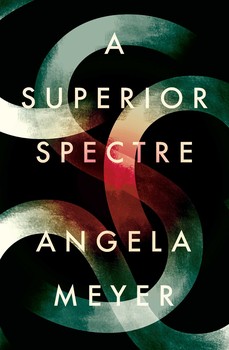If you read 50 books a year, that’s approximately 2,000 books by the end of your lifetime. When I first heard that statistic, I changed my reading habits drastically. If I wasn’t enjoying a book within the first 30-50 pages, it got shelved or returned to the library. My reading style also changed. I no longer reserved reading for when I had large slabs of time, instead, I snuck reading into the cracks of life. I read while cooking dinner, waiting for my partner to get ready and before appointments. I always had my current read close at hand so that I could pick it up whenever an opportunity presented itself. Even with this tactic, I only managed to read thirty new novels this year. (I didn’t count the novels I re-read because I rarely re-read whole novels). This number seems startling low considering that all I do is read and write (and exercise and cook and pat the dog). When I wasn’t reading a novel for personal enjoyment, I was reading journal articles and other texts related to my study. Although I didn’t hit my goal of 50 books last year, many of the books I did read were solid gold.
To celebrate the start of the new year, I’ve compiled a list of my top six favourite reads of 2018.
 Lincoln in the Bardo – George Saunders
Lincoln in the Bardo – George Saunders
The first 30-50 pages of Lincoln in the Bardo are pretty disorientating, but I’m so glad I stuck it out. It’s not that often you pick up a book that teaches you how to read it. Once you understand the premise and the terminology, Lincoln in the Bardo becomes a very rewarding read. It’s funny, heartbreaking and difficult to put down. The novel is about the death of Lincoln’s son William and the incredible grief the follows. Unique texture is established with chapters constructed solely of quotes from eyewitnesses. Many of these quotes are contradictory – some are even made-up! – but the point is to show the fickleness of human perception and historical accounts, and this myopic view helps to provide additional detail that supports the central narrative. Lincoln in the Bardo proves that there is still room to play with narrative structure. That a fictional book can document a historical moment without becoming historical fiction. That a literary book can combine religious themes with genre tropes. Little wonder it won the 2017 Man Booker Prize!

Her Body and Other Parties – Maria Machado
This may be the most exciting book I read last year. Her Body and Other Parties is a collection of short stories that combine supernatural, horror and science fiction tropes with a literary voice. The core themes of body and sex are delivered through a feminist lens, but the hearty use of pop culture references and clever intertextuality give it a contemporary feel. Machado cites Angela Carter and Shirley Jackson as early influences, and their mark on her work is obvious, yet Machado presents a certain playfulness that is all her own. Machado has an incredible ability to turn absurd ideas into unsettling tales filled with philosophical undertones. A woman who undergoes bariatric surgery rapidly loses weight only to discover that this fat has now manifested as a ghostly presence in her basement. Eventually, she attempts to beat the entity to ‘death’, a metaphor for our cultural conditioning to abuse and hate our bodies; to see them as separate from ourselves. One standout story was a summary of 272 episodes of Law and Order: SVU and what Machado thought each episode was really about. Some of these tiny summaries are funny; others are gut-wrenching. Machado’s gift is her ability to write about dark concepts in a way that is beautiful and uncanny and that cuts straight to the bone.

From the Wreck – Jane Rawson
From the Wreck is a difficult novel to describe. It’s historical fiction, but one of the main characters is an alien that lives on the surface of a boy’s shoulder; concealing itself as a birthmark. Sometimes the alien manifests as a beautiful woman. Then there’s this whole thing about horses… Rawson’s style is minimalist, and at times, I was stunned by her brevity. Big ideas, complex plot developments or philosophical statements that could easily flesh out a paragraph are instead presented as tidy, tight sentences. It takes a skilful writer to contain such an incomprehensibly weird idea inside a narrative that is convincing, elegant and completely consuming.
A Superior Spectre – Angela Meyer 
Like the above texts, Angela Meyer’s debut novel is a hybrid of historical, science, horror and literature. It’s exciting to see so many literary authors adopting genre tropes! A Superior Spectre is a deeply layered text. It crosses two time periods and two protagonists whose lives are connecting by a future technology that allows users to enter the mind of someone in the past. The concept is ambitious and Meyer’s minimalist style and fast pace stop the novel from becoming bogged down by description and world building. She also explores complex and interconnected feminist themes about sexuality and suppression and what is morally right vs socially acceptable. In the same way that Jeff invades Leonora’s mind and influences the trajectory of her life, I too felt like an unwelcomed presence; like a parasite, passively watching that destruction of a young girl’s life.
 An Isolated Incident – Emily Maguire
An Isolated Incident – Emily Maguire
I’m about two years behind on this particular bandwagon but better late than never. What I love about Maguire’s novel is that it’s a crime novel but it’s not a crime novel. There are detectives, crime scenes and police interviews, but what this novel is really about is the ramification of crime. What happens to the family of crime victims? What are the first few weeks of an investigation – and grief – really like for them? Maguire carefully weaves elements of the gothic into the central narrative: ghostly sightings, invisible presences and conversation with dead people. Coming from a small outback town myself, Maguire’s depiction of rural communities was spot on. Sometimes, uncomfortable so. An Isolated Incident proves that it is possible to write a crime novel where the protagonist’s emotional journey to more important (and interesting) then finding the culprit.
An Absolutely Remarkable Thing – Hank Green
I love that Hank Green embedded his experience of becoming ‘third tier’ famous into this science fiction romp. It’s not all fun and games though, in fact, most of the novel is a running commentary on life in the digital age. And it’s not pretty. Or healthy. Writing about instant fame (or becoming famous for no reason) is a timely topic and Green does a superb job of showing how the attention we get through social media changes us – and not for the better. Though this is a popular topic for social commentators, I’ve yet to see this idea explored in a novel. Technology, social media, mobile phones and the internet are certainly mentioned in many of the books that I read, but none of these books are about these new technologies. This isn’t exactly surprising though. Writing about present-day technology is a sure-fire way to have your book age quickly. As long as we continue to ponder the uncomfortable, and presently unanswerable, questions like ‘how much is the internet changing us?’ and ‘how can we move forward without losing the best parts of the past?’ Green’s novel is likely to remain relevant. An Absolutely Remarkable Thing proves that it’s okay (and maybe even necessary) to explore themes that are timely rather than timeless.


thx for sharing, have to add to the list a couple new books now :))
LikeLike
I’m glad you like the post, Victoria. Happy reading!
LikeLiked by 1 person
💙💙
LikeLike